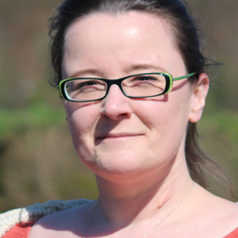
Rita Singer
Post-Doctoral Research Associate and Project Coordinator, Aberystwyth University
I am an experienced researcher and project officer with a particular interest in Welsh writing in English, historical fiction, literary geographies and the history of tourism in Wales. I have taught several seminars in English Literature and Cultural Studies with an emphasis on Welsh history and culture.
I have published several research articles on European travellers in Wales, historical visitors' books, and historical fiction from and about Wales. I have also edited new editions of works by Welsh authors that had fallen out of print. Among them are Twm Shôn Catti (1828) by T. J. Llewelyn Prichard, Gladys of Harlech (1858) by Louisa Matilda Spooner and Rob the Red-Hand, a collection of short stories and novellas by the late Romantic author Thomas Richards, Dolgellau.
Less ![]()

Rita L. Sousa
PhD Candidate, University of Antwerp
I received a doctoral fellowship grant (DOCPRO) from the University of Antwerp (Belgium) in the field of in vitro gametogenesis in the context of fertility preservation at the Department of Veterinary Sciences. The aim of my PhD is to isolate and fully characterise stem cells that we believe are present in porcine ovaries and to differentiate them into oocyte-like cells, that could potentially be fertilised and produce viable offspring.
Fertility preservation, stem cell research, gametogenesis and embryology are my main interests, since the existence of stem cells with germline potential might be the key for infertility treatments and a source for fertility restoration.
I hold a master’s degree in biological engineering from Instituto Superior Técnico (Lisbon, Portugal).
Less ![]()

Rita V. Burke
Associate Professor of Clinical Population and Public Health Sciences, University of Southern California
Less ![]()
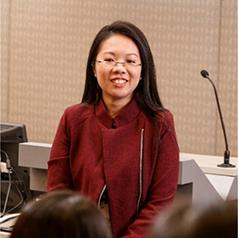
Rita Yi Man Li
Director of Sustainable Real Estate Research Center / Economics and Finance Professor with specialty in AI, Hong Kong Shue Yan University
Graduated from HKU (global subject ranking 14 in QS), I now serve as a Full Professor in Dept of Economics and Finance in Hong Kong Shue Yan University. I am the founder and director of Sustainable Real Estate Research Center. My major field of research interests lies in SDGs, construction safety and health, housing economics, real estate economics, applied AI,
I am listed as Stanford University World’s Top 2% Scientist across 22 scientific fields and 176 sub-fields of all scientists (2020-2022 single year, 2022 career-long) with the highest rank in the fields of artificial intelligence, Information & Communication Technologies, Environmental Sciences (2021)/energy(2022). I act as a journal editorial board member and SI editor for SSCI/SCIE journals, an author of 9 books and over 200 articles over the past eight years. Apart from writing single-authored papers mostly in my early career, I have quite an extensive academic network with research collaborators from Australia, the UK, Italy, the US, Cyprus, France, Canada, Thailand, Malaysia, Turkey, Bangladesh, Saudi Arabia and mainland China etc. I am also an invited keynote speaker for over 30 conferences.
Less ![]()
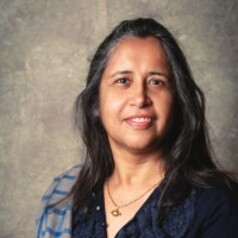
Ritu Aneja
Professor of Clinical and Diagnostic Sciences, Associate Dean of Research and Innovation in the School of Health Professions, University of Alabama at Birmingham
Ritu Aneja, PhD is a Professor in the Department of Clinical and Diagnostic Sciences and Associate Dean for Research and Innovation in the School of Health Professions. She is a basic and translational scientist who conducts a broad spectrum of research in the areas of breast cancer health disparities, diagnostic, prognostic, and predictive biomarkers, and novel chemopreventive and chemotherapeutic strategies, using integrative multi-omic and machine-learning based approaches. Her lab is investigating the socio-biological mechanisms of breast cancer disparities and has been continuously funded since 2007 through K99/R00, U01, R01, R03, and STTR grants from the NIH, as well as other agencies such as the DoD and non-profit foundations, for cancer and racial disparities research. The breadth of her research experiences is well suited for the diverse nature of the CPCTP.
The goal of her research is to understand why survival and treatment outcomes differ between White and Black women, with a focus on triple negative breast cancer (TNBC), an aggressive subtype that disproportionately affects Black women. Her convergence research has led her to assemble teams of researchers and clinicians from multiple life science, clinical science, and social science disciplines to collaboratively address complex medical challenges that are deeply entwined with social structures and existing health inequalities. In this context, Dr. Aneja recognized the imperative need for a global approach to address cancer disparities and founded the International Consortium for Advancing Research on Triple Negative Breast Cancer (ICART) in 2016. ICART is a global platform of research groups from 10 countries across four continents, with the mission of aggregating complementary expertise and resources globally, to advance knowledge on TNBC and reduce breast cancer-related disparities. Today, ICART includes more than 30 hospitals and institutions, including a network of 15 teaching hospitals across Nigeria and Ghana and has so far enabled 9 multi-institutional studies and trained 15 graduate students and 8 junior investigators across the globe, resulting in more than 30 publications.
Less ![]()

Ritu Trivedi
PhD Student, University of Sydney
I am a final year PhD student at the University of Sydney, looking at the role digital health technologies for supporting patients with atrial fibrillation and managing their risk factors. I have completed a Bachelor of Science (Biomedical Sciences) at the University of Queensland in 2018. I commenced my PhD in Medicine and Heath in 2020 and am due to submit my thesis early next year.
Less ![]()

Rivka Isaacson
Professor of Molecular Biophysics, King's College London
Professor Rivka Isaacson is Professor of Molecular Biophysics in the Department of Chemistry, King’s College London.
Rivka obtained a B.Sc. in Biochemistry from the University of Manchester in 1997, followed by a Ph.D. in Chemistry from the University of Cambridge in 2001, under the supervision of Professor Sir Alan Fersht, FRS. She carried out post-doctoral research at Harvard Medical School with Professor Pamela Silver, and then at Imperial College London with Professor Steve Matthews. Subsequently, she worked at the Imperial College Drug Discovery Centre before starting her own research group in 2009 funded by an MRC New Investigator Research Grant.
Rivka is passionate about radical interdisciplinarity, conducting many projects across the arts-sciences interface, including an ongoing multimedia collaboration with London Fine Art Studios called Viewing the Invisible and a longstanding relationship with the Iris Murdoch Research Centre at Chichester University around science and literature.
Rivka currently serves on the UKRI Physics of Life steering group and the executive committee for the national Collaborative Computing Project for NMR. She was the 2021 winner of the Judith Howard prize from the Biophysical Sciences Institute at Durham University and the 2024 winner of the British Biophysical Society Elspeth Garman prize.
Less ![]()

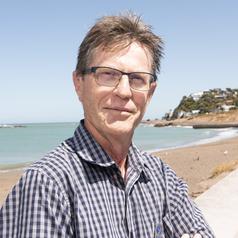
Rob Bell
Teaching Fellow, Environmental Planning Programme, University of Waikato
Rob Bell has 42 years’ experience in coastal and estuary engineering, risk from coastal hazards, the impacts of climate change on coastal lowland communities and infrastructure and adaptive planning for climate adaptation (including managed retreat).
Rob, formerly with NIWA, was the Lead Author of the 2017 coastal guidance for local government published by NZ’s Ministry for the Environment for planning adaptation to climate change and contributed to the forthcoming 2023 revision. The guidance pivots around the Dynamic Adaptive Pathways Planning approach to deal with the deepening uncertainty from coastal climate impacts.
Rob was a Contributing Author for the IPCC Working Group II 6th Assessment Report on climate change impacts for Australasia (2022). Rob's primary research interests are coastal hazards, sea-level rise, risk assessments and climate adaptation approaches.
Rob is a certified Resource Management Act Hearings Commissioner and Chartered Professional Engineer (Environmental).
Less ![]()
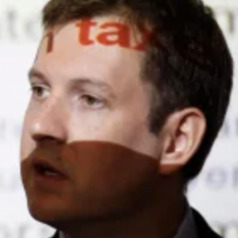
Rob Branston
Senior Lecturer in Business Economics, University of Bath
My primary research interests surround the governance and regulation of organisations, with a particular focus on the provision of public utilities and other key sectors, most notably the global tobacco industry. I have researched the conduct, performance, and market impact of transnational companies, and appropriate regulatory measures that might be applied to such companies in order to secure the public interest. More recently I have developed an interest in the conduct and performance of micro-firms, especially in the area of regulation.
I have worked with and have been funded by Action on Smoking and Health (ASH), The Irish Cancer Society, The Irish Heart Foundaction, The Royal Economics society, the National Insitute for Health Research, and Cancer Research UK. I have shared my expertise with the Houses of Parliament, HM Treasury, and the Department for Health in the UK, and the Ministry of Finance in the Republic of Ireland, and I and my work have been featured in various national media outlets.
Less ![]()
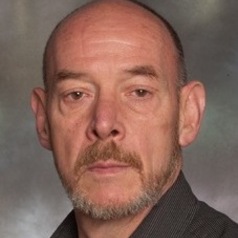
Rob Bray
Rob Bray is a Research Fellow in the College of Arts and Social Sciences at the Australian National University. Prior to his commencement at the university he had long career in the Australian Public Service as a policy analyst and researcher. In 2010 he was awarded the Public Service Medal in recognition of his work on poverty and hardship.
Rob's current research includes the measurement of well-being and the role of the welfare system and its interelationship with participation. Recent publications include the first report of the Evaluation of New Income Management in the Northern Territory, and on the characteristics and outcomes of young carers in Australia.
Less ![]()
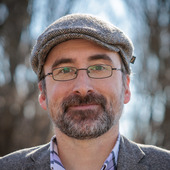
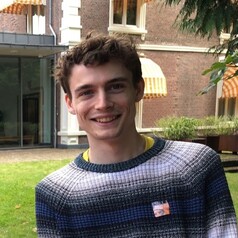
Rob Davidson
Postgraduate Researcher in Human Geography, UCL
Rob Davidson is a PhD candidate in the UCL Department of Geography, co-funded by the ESRC and The Health Foundation. He is also a research assistant at the UCL Centre on US Politics. He previously worked as a visual and data journalism intern at the Financial Times and a consultant for the Inter American Development Bank.
His research focuses on the use of data visualisation to communicate health and social inequalities in the UK.
Less ![]()
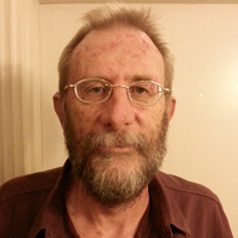
Rob Dorrington
Professor Emeritus, University of Cape Town
An actuary and a demographer. Retired from UCT after having developed and run the Actuarial Science programme for many years, after which helped to launch a postgraduate programme in technical demography. During this period main research effort was concentrated on quantifying the demographic impact of the HIV/AIDS epidemic, and assessing and advising on the post-1994 census results.
Following retirement, the main research focus has been on quantifying the impact of the SARS-CoV-2 epidemic on mortality in near-real time and population and demographic projections.
Less ![]()

Rob Evans
Professor in science and technology studies, Cardiff University
My academic home is in the field of Science and Technology Studies, and my interests are in the nature and use of expertise. This translates into questions about the sorts of knowledge needed to make decisions, who possesses it, and how it is shared and acted upon.
Within STS, my work has played a central role in founding what has been called 'Studies of Expertise and Experience' or the 'Third Wave of Science Studies.' The characteristic features of this approach are a more 'realist' approach to expertise that emphasises the role of tacit knowledge and the development of a more explicitly normative approach through which STS scholars can contribute to technological decision-making in the public domain.
Less ![]()
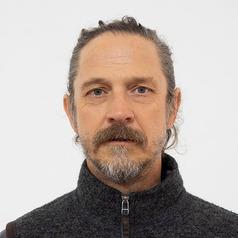
Rob Flint
Senior Lecturer Nottingham in the School of Art and Design, Nottingham Trent University
Rob Flint is an artist and an educator. He studied at Sussex University, Royal College of Art, and University of the Arts London. His research and artistic practice explores how the senses relate to one another and how the voice directs our experience. His work takes place in a range of contexts, including gallery, cinema screenings, printed word, and music and sound performance. His participatory performance 'Like Work' was performed in the Research Pavilion at the 2019 Venice Biennale.
Rob teaches Fine Art at Nottingham Trent University, where he is working with colleagues in other disciplines to create teaching experiences addressing new and old combined media and immersive spaces.
Less ![]()
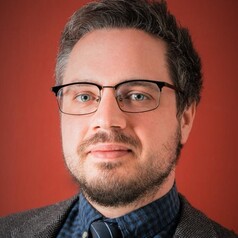
Rob Geist Pinfold
Lecturer in Peace and Security, Durham University
Dr. Rob Geist Pinfold joined the School of Government and International Affairs in 2022. Alongside his role at Durham, he is a Research Fellow at the Peace Research Center Prague and a Senior Fellow at Charles University's Herzl Center for Israel Studies. Rob holds a PhD in War Studies from King’s College London. Previously, he was a Post-Doctoral Fellow at the Hebrew University of Jerusalem and the University of Haifa.
Rob is a scholar of international security whose research intersects the study of strategy and territorial conflict. His existing work has focused on two key themes: (i) military occupation and exit dilemmas and (ii) how 'grand strategy' is studied within the academy. His work has been published in International Studies Perspectives, the Journal of Strategic Studies, Studies in Conflict and Terrorism and Mediterranean Politics. His full-length book manuscript, Understanding Territorial Withdrawal: Israeli Occupations and Exits, will be published by Oxford University Press in 2023.
Research interests
Israeli foreign and security policy
Military interventions and occupations
Strategy and grand strategy
Territorial conflict
Less ![]()
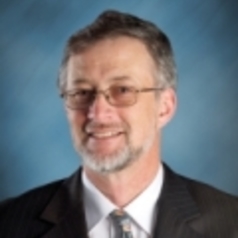
Rob Livingstonre
For more than three decades Rob Livingstone has amassed senior managerial experience, substantially as CIO in multinational corporations. He is also an author, columnist, speaker and regular news media commentator on the implications of new and disruptive technologies.
As a Fellow of the University of Technology, Sydney’s Faculty of Engineering and IT, Rob lectures to higher‐degree students on leadership, strategy and innovation. He is also a Research Associate at UTS's Communications Law Centre, an independent non‐profit, public interest centre specialising in communications, media and online law and policy.
Since 2010, Rob has been running his advisory practice, Rob Livingstone Advisory Pty Ltd, and is now a sought‐after mentor, consultant and industry advisor.
Rob’s latest book 'Direction through Disruption', deals with one of the most serious career challenges facing us today – how to plan and pursue a successful knowledge intensive career in the age of globalisation and disruptive digital technologies.
His earlier book, 'Navigating through the Cloud', has provided invaluable insight to a wide range of corporations weighing up the risks and rewards that so many new technologies embody.
Less ![]()

Rob Newton
Professor of Exercise Medicine, Edith Cowan University
Professor Robert Newton, PhD, DSc, AEP, CSCS*D, FACSM, FESSA, FNSCA is a Vice Chancellor's Professorial Research Fellow and Professor of Exercise Medicine in the Exercise Medicine Research Institute at Edith Cowan University Perth, Western Australia. Current major research directions include: reducing decline in strength, body composition and functional ability in cancer patients; cancer related fatigue and the influence of exercise; exercise medicine and tumour biology.
Professor Newton has published over 1000 papers including 520 refereed scientific journal papers, two books, 17 book chapters and has a current Scopus h-Index of 94 with his work being cited 32,500 times. As of 2024 his research had attracted over $50Million in competitive research funding. In 2018 he was awarded the Cancer Council of Western Australian Career Achievement Award and in 2019 was named the Western Australia Premiers Scientist of the Year.
Less ![]()
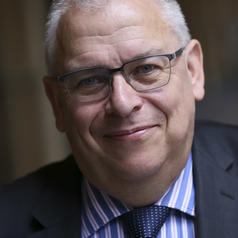
Rob Nicholls
Dr Rob Nicholls is a lecturer in business law at the UNSW Business School.
He was previously a research fellow at Swinburne University of Technology where he worked on spectrum policy matters and a research fellow at the Centre for International Finance and Regulation where he researched the intersection of competition law with financial services regulations. His research applies system and network analysis techniques, commonly used in networked industries, to examine error amplification. Rob is the Independent Telecommunications Adjudicator in a regime established to deal with wholesale disputes arising over both legacy services and migration to the NBN. He has had a thirty-year career concentrating on regulations and governance, particularly in networked industries. He has worked for Webb Henderson, the ACCC and Gilbert + Tobin.
Less ![]()
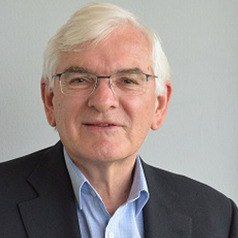
Rob Skinner
Professorial Fellow, Monash Sustainable Development Institute, Monash University
Professor Rob Skinner AM is a Professorial Fellow with MSDI Water.
He is also Chair of WaterAid Australia and Chair of WaterAid International; Deputy chair of the CRC for Water sensitive Cities; Deputy Chair of Yarra Valley Water; and Director of the International Centre of Excellence for Water Resources Management.
Rob is also Lead Chair of the Andrews Government’s new Metropolitan and Regional Water Forums which puts communities at the heart of storm and recycled water management for Victoria.
In 2019 Rob was recognised by UN-Water as the official Australian contact point for SDG 6 (Clean Water and Sanitation).
Rob was Managing Director of Melbourne Water from 2005 to 2011. Prior to joining Melbourne Water, Rob was Chief Executive Officer of the Kingston Council – a large municipal council in metropolitan Melbourne – during which time he also held a number of key positions in the water sector as chairman or member of boards or government advisory committees.
He has been a Board member of the Water Services Association of Australia. He is a Distinguished Fellow of the International Water Association and Chair of the Association’s Cities of the Future Program.
Whilst at Melbourne Water Rob initiated a number of collaborative relationships between Melbourne Water and agencies in Singapore, UK, Israel and Timor Leste.
Less ![]()
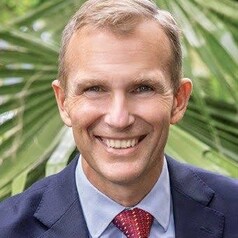
Rob Stokes
Industry Professor, Environment and Sustainability, Macquarie University
Rob Stokes is an urbanist fascinated by places and passionate about people. Currently serving as Chair of Faith Housing Australia and on the Australian Government Urban Policy Forum, Rob was the first-ever Minister for Public Spaces, and Australia's first-ever Minister for Active Transport. Rob also served as Minister for Planning, Education, Environment, Infrastructure, Roads and Transport, Cities and Heritage in a political career that spanned more than 15 years. A qualified lawyer, Rob has read sustainable urban development at Oxford and completed a PhD in Planning Law at Macquarie University.
Less ![]()
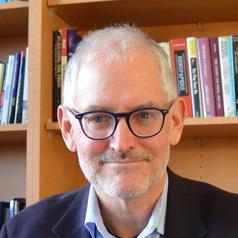
Rob Wells
Associate Professor of Journalism, University of Maryland
I was a full-time journalist for 26 years, primarily covering business and politics, at The Associated Press, Bloomberg News, Dow Jones Newswires, and The Wall Street Journal. I was the Washington bureau chief for Dow Jones Newswires and then the Deputy Bureau Chief for the Wall Street Journal in Washington. I began teaching at the Merrill College in 2010. I left the newsroom in 2011 to pursue a second career in academia.
I have authored two books: “The Enforcers: How Little-Known Trade Reporters Exposed the Keating Five and Advanced Business Journalism” (University of Illinois Press, 2019), and "The Insider: How the Kiplinger Newsletter Bridged Washington and Wall Street" (University of Massachusetts Press, 2022).
I earned a Master of Arts in Liberal Studies at St. John's College in Annapolis and then a Ph.D. in Journalism Studies at the Merrill College. During the 2011-12 school year, I helped launch a business reporting program at the University of South Carolina while serving as a Reynolds Visiting Business Journalism Professor.
After earning my Ph.D. in 2016, I taught for five years at the University of Arkansas, where I rose to the rank of associate professor and led Arkansas' journalism graduate program. While at Arkansas, I ran ArkansasCovid.com, an award-winning statewide daily data and news website reporting on the pandemic. I also partnered with Merrill’s Howard Center for Investigative Journalism on multiple projects, including the award-winning “Nowhere To Go” homelessness investigation. I returned to the Merrill College in the Spring 2022, where I teach data journalism, basic reporting and an investigative reporting course in Baltimore.
Less ![]()
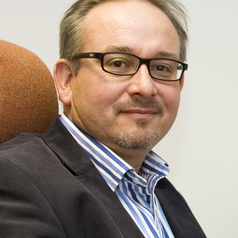
Rob Wortham
I am currently undertaking a Computer Science PhD at the University of Bath researching autonomous robotics, with a focus on domestic applications and ethical considerations. What models do humans form when interacting with AI systems, and how do we make the behaviour of these systems more understandable? I am interested in real world AI for real world problems.
I am also Founder and CFO of RWA Ltd, a major international supplier of IT systems to the leisure travel industry for over 20 years.
I have a wide experience of developing technology and systems, including electronics, chip design, systems and applications programming in many languages and environments.
Less ![]()

Robbee Wedow
Assistant Professor of Sociology and Data Science, Purdue University
I'm an Assistant Professor of Sociology and Data Science at Purdue University, with lots of other connections that reflect the interdisciplinary nature of my research. I am also an Adjunct Assistant Professor of Medical and Molecular Genetics at Indiana University School of Medicine. Before coming to Purdue, I did my PhD at the University of Colorado Boulder and my postdoc at the Broad Institute of MIT and Harvard. My main research interest is in sociogenomics, which lies at the intersection of sociology, demography, and statistical & computational genetics. I am interested in how social forces and environments interact with genetics (gene-by-environment interactions). Using recent advances in genetic data collection and methodological developments in statistical genetics, I leverage large-scale genetic data to explore how sociological outcomes change across context, across time, and across outcome measurement. I am also deeply dedicated to clearly and sensitively communicating the findings from my work in an ethically-engaged and community-based fashion. My work outside of social science genetics focuses on population health, health disparities, and quasi-experimental designs and methodologies.
Less ![]()
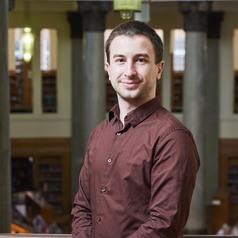
Robbie Morgan
Lecturer and Consultant in Applied Ethics, University of Leeds
I joined the IDEA Centre as a Teaching Fellow in September 2021 and became a Lecturer and Consultant in August 2022. Prior to this, I worked as a University Teacher in Feminist Philosophy at the University of Sheffield and as a Hearings Support Officer in the fitness to practise directorate of a professional regulator. Additionally, I have experience in pastoral support and governance within higher education.
In 2019, I completed my PhD at The University of Sheffield under the supervision of Christopher Bennett and Jennifer Saul. Before this, I completed a BA and MA in Philosophy, also at The University of Sheffield.
Research interests
My research focuses on issues in the philosophy of sex, particularly as this intersects with feminist philosophy. I am currently writing on language change, conscientious objection in medicine, the metaphysics of touch, and the value of consensual sex.
Less ![]()
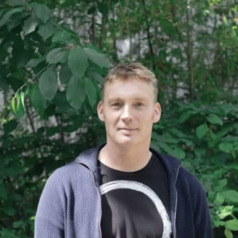
Robbie Sutton
Professor of Social Psychology, University of Kent
Robbie is interested in the social psychology of justice and (in)equality, including:
Just-world beliefs
These refer to the extent to which people believe they, and others, receive the treatment and life outcomes they deserve. These are related to psychological health, functioning, and a raft of social attitudes (for more information, see Hafer & Sutton, 2014; Sutton & Douglas, 2005; Sutton & Winnard, 2007; Sutton et al., 2008; Wu et al., 2013 in the publication list).
Conspiracy beliefs
Robbie collaborates with Professor Karen Douglas on conspiracy belief (see Douglas & Sutton, 2008, 2011, Sutton & Douglas, 2014. Their work examines the psychological mechanisms that cause people to entertain such beliefs.
Immanent justice reasoning
Robbie collaborates with Mitch Callan (University of Essex) on why people tend to perceive that a person's misfortune must be attributable to some prior misdeed of theirs, even when the two cannot be related (Callan et al., 2010, 2013, 2014).
Gender, sexism and inequality
Robbie has studied several aspects of gender inequality, including gendered fear of crime (Sutton & Farrall, 2005, 2008; Sutton, Robinson & Farrall, 2011), sexist intrusions on the autonomy of women during pregnancy (Murphy et al., 2011; Sutton, Douglas, & McClellan, 2011), and gender inequality in educational attainment (Hartley & Sutton, 2013).
He is interested in social communicative approaches to these and other questions, such as intergroup relations (e.g., Douglas & Sutton, 2003, 2010; Sutton, Elder & Douglas, 2006). A related interest is in environmental psychology.
Less ![]()
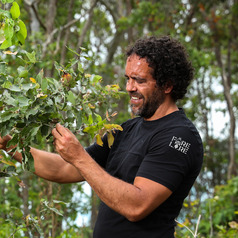
Robbie Williams
Traditional Owner, Indigenous Knowledge
Robbie is the founder of FIRE LORE, a cultural burning organisation based in northern New South Wales
Less ![]()
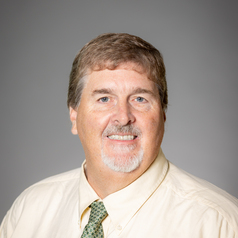
Robbin Mellen Jr.
Assistant Professor of Political Science, University of South Florida
My teaching and research interests revolve around the presidency and the interaction between the executive branch, legislative branch, and the judiciary. I focus most closely on the president and their activities, especially during midterm elections. I have published multiple articles focused on what presidents do during the midterms and how effective their efforts are. I also examine the collaboration and conflict between the branches that either leads to or precludes effective government. I am a big fan of the late Richard Neustadt and his theory of presidential power, which exists in the ability to persuade according to him. The reliance on command authority is a sign of a failure to lead effectively.
Less ![]()
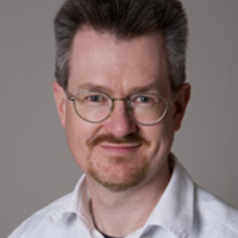
Robert Ackrill
Professor of European Economics and Policy, Nottingham Trent University
Rob's role at NTU embraces the full range of academic activities. His main teaching is on the Economics of European Union but, in most years, he contributes to a range of undergraduate and postgraduate modules on international and applied economics. He has also taught introductory level Economics and Industrial Economics. Rob places a great emphasis on research-informed teaching.
Within the Division of Economics Rob is currently Module Leader for the Level 3 module Jean Monnet Europe and the World Economy, and Module Leader for the Level 3 Research Project in Economics. He is also the Division's Placement co-ordinator. He is a member of the NBS Research Policy Group. He chairs the NBS School Research Ethics Committee and is a member of the College Research Ethics Committee.
Rob's teaching on the Economics of the EU has received financial support from the European Commission. In 2004 he was awarded 'Jean Monnet' funding to support the creation and initial years' teaching of his module Europe and the World Economy. In 2010 he was awarded a Jean Monnet Chair in European Economic Studies, again with funding which supports his teaching and his teaching-related research activities.
In 2012 Rob was awarded Nottingham Trent Students Union's Outstanding Teaching Award, 2012, for NBS.
In 2013 Rob was one of only two academics at NTU to receive the inaugural Vice Chancellor's Teaching Award.
Rob's research is in applied economics and public policy analysis. He has particular expertise in EU policies, the WTO and agricultural trade policies, and biofuels policies.
Less ![]()
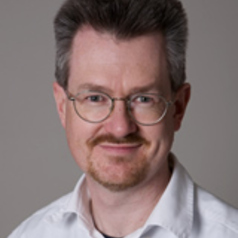
Robert Ackrill
Rob's role at NTU embraces the full range of academic activities. His main teaching is on the Economics of European Union but, in most years, he contributes to a range of undergraduate and postgraduate modules on international and applied economics. He has also taught introductory level Economics and Industrial Economics. Rob places a great emphasis on research-informed teaching.
Within the Division of Economics Rob is currently Module Leader for the Level 3 module Jean Monnet Europe and the World Economy, and Module Leader for the Level 3 Research Project in Economics. He is also the Division's Placement co-ordinator. He is a member of the NBS Research Policy Group. He chairs the NBS School Research Ethics Committee and is a member of the College Research Ethics Committee.
Rob's teaching on the Economics of the EU has received financial support from the European Commission. In 2004 he was awarded 'Jean Monnet' funding to support the creation and initial years' teaching of his module Europe and the World Economy. In 2010 he was awarded a Jean Monnet Chair in European Economic Studies, again with funding which supports his teaching and his teaching-related research activities.
In 2012 Rob was awarded Nottingham Trent Students Union's Outstanding Teaching Award, 2012, for NBS.
In 2013 Rob was one of only two academics at NTU to receive the inaugural Vice Chancellor's Teaching Award.
Rob's research is in applied economics and public policy analysis. He has particular expertise in EU policies, the WTO and agricultural trade policies, and biofuels policies.
Less ![]()
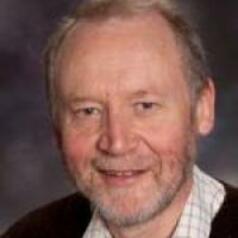
Robert Attenborough
Honorary Senior Lecturer in Bioanthropology, Australian National University
Papua New Guinea has been the focus of most of my recent research on health, nutrition and demography. This has been both at the level of nationwide and historical reviews, and of local research with Dr Don Gardner amongst the Mianmin of the highlands fringes of Sandaun (West Sepik) Province, where life expectancy is short, and health and child growth are generally poor, but where these also vary with local variation in altitude and ecology.
In a different kind of human biological research project (also ARC-funded), I have recently focused with Prof Simon Easteal and others on the anthropological genetics of Papua New Guinea. In this project we are exploring genetic variation in both the female and male lines for clues as to the long-range histories of Papuan-speaking populations: questions include how the island of New Guinea was originally populated; whether genetic variation correlates with linguistic variation; and whether particular population groups may have expanded with the expansion of language families agricultural practices.
In earlier research I studied population processes, ecology and nutrition in Zangskar valley, Jammu and Kashmir Province, northern India.
Less ![]()
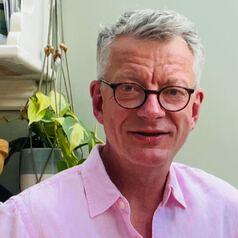
Robert Barton
Professor of Evolutionary Anthropology, Durham University
I am interested in brain evolution and evolutionary neuroscience, cognition, human and primate behaviour, sexual selection, the evolution of reproductive strategies, and the evolution of sleep patterns. I developed and tested the 'Visual brain hypothesis' for primate brain size evolution, and have recently become interested in the underestimated role of the cerebellum in brain evolution and cognition. I have also published research on the effects of red colouration on human social perceptions and sporting contest outcomes
Less ![]()
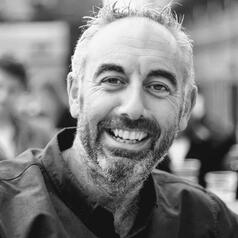
Robert Black
Lecturer in Information Activities, Cranfield University
Rob Black is a Lecturer in Information Activities at Cranfield University, at the UK Defence Academy. He teaches on the Ministry of Defence’s Cyberspace Operations MSc and his interests are focused on the nexus of cyber, intelligence and warfighting, deception and the legality of cyber operations. He is the former Deputy Director of the UK’s National Cyber Deception Laboratory which explored the potential cyber deception has to offer for cyber defence. Previously, he worked for the MoD developing cyber capabilities supporting the delivery of UK cyber operations.
Additionally, Rob is the Director of the UK Cyber 9/12 Strategy Challenge, a university student competition focused on building the next generation of cybersecurity leaders competent in strategy, policy and technology.
Rob is also an Associate Programme Director at Wilton Park, an agency of the UK FCDO, where he enables policy dialogues on key issues in defence and national security, cyber and intelligence.
Less ![]()
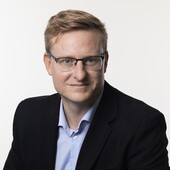
Robert Botha
Research Fellow at the Impumelelo Economic Growth Lab. The Impumelelo Economic Growth Lab is a unit of the Bureau for Economic Research (BER), Stellenbosch University
Less ![]()
- Market Data




















